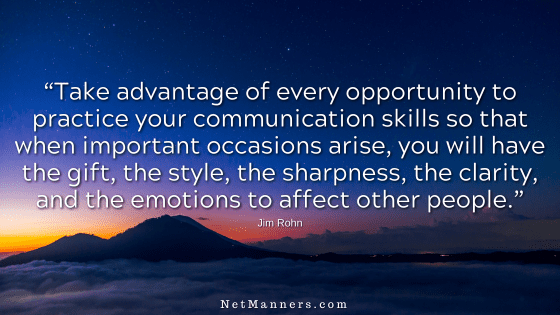Approaching Employers Via Email

Loyal readers have heard me say this before. However, you cannot underestimate the power of perception, even more so regarding employment opportunities and your email communications.
Since so many are seeking new opportunities, what a perfect time to cover all the bases of applying for employment via websites and email. First, however, considering there will be competition, let’s make sure you make a great impression, okay?
Emailing Your Resumes and Cover Letter
Inquiries seeking employment should be no different by email than on formal stationery, including the highest level of formality.
Informality and lack of attention to detail just because you use email can be fatal. A mistake that can cause your inquiry to be sent right to the trash.
You also want to take the time to create inquiries that are explicitly tailored to the company you are approaching. And the specific job of interest.
Generic mass mailings that can apply to any job at any company are just that – generic. We don’t want to appear lazy, do we?
Set Yourself Up to Impress
Recruiters view unsolicited email submissions as informal and unprofessional. In addition, they are busy folks and may not appreciate being sent attachments they did not ask for.
Here’s where taking your time and paying attention to detail can make a huge difference. Especially when up against those who make the appropriate efforts.
Applicants who take the time to craft a professional cover letter that includes an adequately created resume, then send it to the right individual—that’s how you do it!
To impress means you stand out from all the others who are unwilling to make that extra effort. You include the details and information that reflect that you aren’t mass mailing just anyone to get any position.
Avoid Resume Spamming
Is there any indication that a company is accepting resumes by email on its website? Do not assume your submission will be welcome.
When specific instructions or a submission form are not offered, think about going old school. For example, sending a hard copy of a professional letter reflecting your interest may be best via snail mail.
You will never make a positive impression by randomly emailing your information to any email address you find. Nor will a recruiter or potential employer appreciate receiving attachments they did not request.
Do Your Homework
Your Email Cover Message
We want to be clear, concise, and professional. Here is an example email:
Dear (Insert: Mr./Ms. LastName):
I appreciate you taking the time to speak with me today. Per our conversation, please find attached my resume reflecting my experience and interest in the PositionName.
Please do not hesitate to contact me with any questions you may have. Thank you for your time and consideration and I look forward to hearing from you.
Sincerely,
FirstName LastName
Phone Number
Naming Your Resume File
All the little details can add up to proving you are a candidate worth considering. Details like how you name your resume file, for example, firstname-lastname-resume.pdf, help ensure your resume is easily identified.
Sending Signals
Prospective employers will not have the signals we all rely on in person. There will be no eye contact, firm handshake, or body language to determine your sincerity and professionalism.
They hang on to your approach, tone, and how you use technology. Employers will only have how you communicate with them to decide if you want to follow up with or possibly hire.
Your approach, style, and ability to cater to their submission requirements will be critical.
Every Little Detail Matters
How you approach prospective employers online can go a long way toward getting that all-important follow-up. Unfortunately, poor grammar, typos, or seemingly minor mistakes can take you out of the running.
Rare are the jobs that do not require technical skills. However, many businesses now need you to understand the primary variables of using email for business as part of your responsibilities. So, even if you’ve not communicated for business via email in the past, now is the time to hone those skills.
If you use technology to job hunt, you want to show that you have the skill set to do so impressively. Otherwise, you risk disqualification right out of the gate.
Wrapping Up: 10 Online Job Application Tips
- First, check the prospective employer’s website. Look for the requirements for submitting your resume or CV for consideration. Follow the instructions to a “T”.
- Do not send unsolicited email resumes. Most employers will offer an area of available opportunities on their website. If they don’t, pick up the phone and find out before you send it without notice.
- Send your resume to the specified address. Do not arbitrarily send to any email address you find. Or worse, send multiple copies to multiple addresses.
- Format your resume in PDF format to ensure cross-platform viability. This will ensure that your information will display as you intended, regardless of what operating system the employer or recruiter may have.
- Keep your resume limited to a brief cover letter stating your interest in that specific opportunity. It need not be more than a page or two. Highlight your experience and previous job experience. You can note that you are happy to offer more information upon request.
- Don’t format your resume with text colors or add photos or graphics to spruce it up. If you wouldn’t add it to business letterhead, don’t add it to your resume.
- Do not use Return Receipt to track your email. You don’t want to be intrusive.
- Have a friend review your email, cover letter, and resume to catch any misspellings or grammatical mistakes you may have missed.
- Formality matters. In your introduction email, use the highest level of formality. Describe the position of interest and note your contact information.
- Finally, if you receive a reply, respond promptly. Thank them for their time and consideration, regardless of whether it is good news. This will leave a professional and positive final impression. You never know what the future may hold.
Planning and Presentation
Follow these tips to offer a professional impression—an impression that will lead to an interview, an offer, and then a job.
You’ll rise above other applicants who disregard these details by taking your time and due diligence. Here’s to your success!






